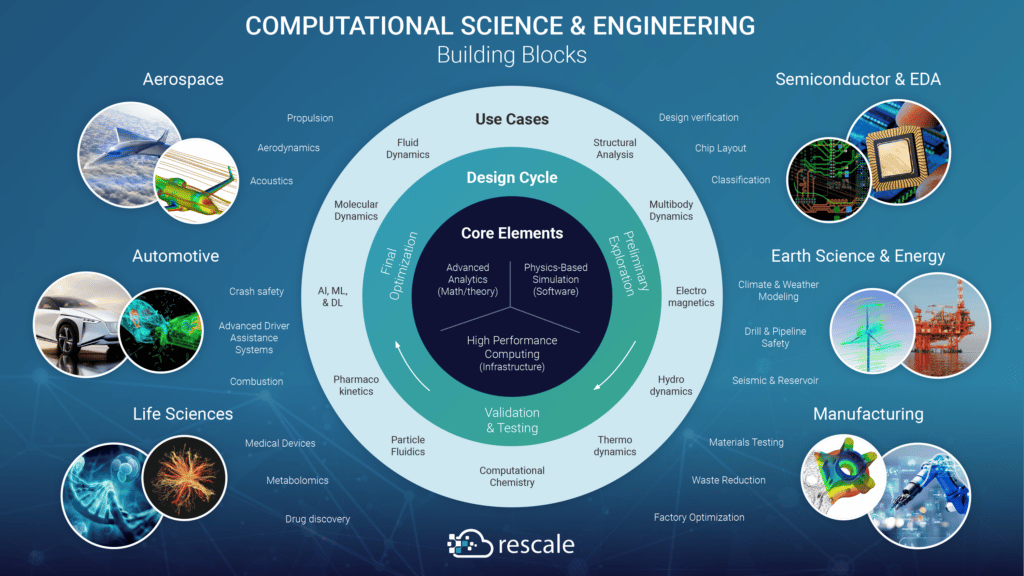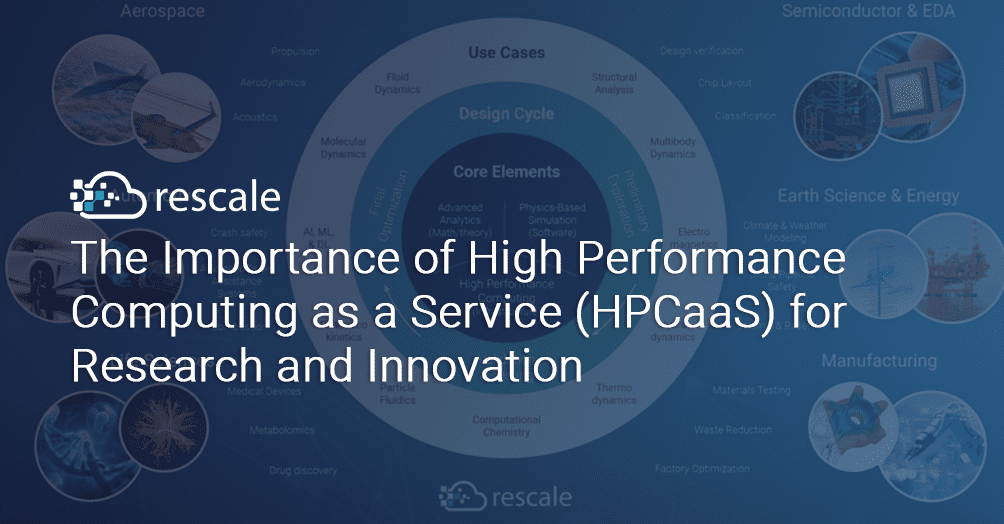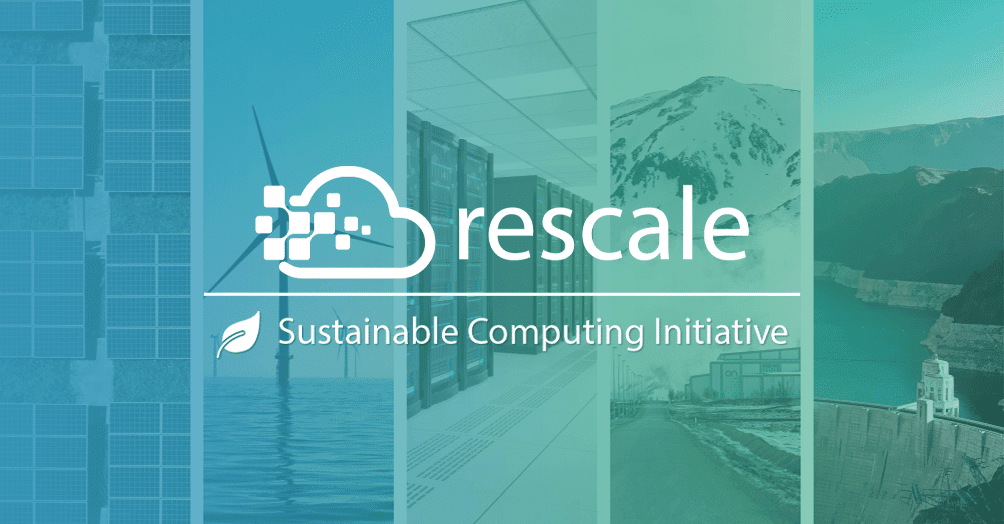The Importance of High-Performance Computing as a Service (HPCaaS) for Research and Innovation
In deadline-driven R&D environments, engineering and scientific leaders are under pressure to strike an optimal balance between speed to market, costs, product quality, and risk mitigation. Real-world constraints for pioneering new innovations are ever-shifting. According to a recent report from McKinsey Insights, organizations are under pressure to adapt to the following challenges:
- Accelerating innovation cycles
- Serving customers’ core needs
- Improving accountability metrics
- Focusing on strategic projects rather than tactical tasks
- Better aligning designs to their intended objectives
To address these limitations, organizations in R&D-intensive industries must overcome computational barriers to power their innovation efforts. It’s this reason why, according to estimates from Gartner, that by 2025, 85 percent of infrastructure strategies will integrate on-premises, collocation, cloud, and edge delivery options, compared with 20 percent in 2020. Given this trend, organizations of all types are seeking to invest in networks of ecosystems through a collaborative approach to scale their cloud capabilities.
That’s where high performance computing as a service (HPCaaS) provides both incremental and long-term value to scientific and technical R&D teams. Just as software-as-a-service (SaaS) models have helped companies build more efficient technology stacks, HPCaaS introduces new capabilities to R&D workflows.
Here are some details to keep in mind when evaluating HPCaaS as part of your R&D compute toolkit.
HPCaaS Overview: What It is, How It Works, Why It Matters
HPCaaS aggregates and automates a computing stack’s many moving pieces for easier and more efficient adoption and orchestration. With this technology — in contrast to on-premises solutions — R&D environments can access workload-specific computing resources on demand, to adapt to a rapidly evolving technology landscape.
You can think of HPCaaS as an orchestration and management layer on top of the world’s public cloud infrastructure, such as AWS, Google Cloud, and Microsoft Azure,. This layer operates as a new business model, tailored to the objective of running HPC workloads.
Through a licensing model, an HPCaaS platform helps R&D teams overcome common limitations of on-prem data centers — the biggest being the extensive capital cost and procurement processes associated with developing infrastructure for novel computing needs. Most importantly, HPCaaS addresses the dreaded QUEUE — when leading scientists and engineers must wait for access to computing resources.
HPCaaS gives scientific and technical teams the critical resources they need to adapt to a world that is changing quickly. At Rescale, our HPCaaS platform helps organizations easily source and deploy HPC hardware and software to power modern computational innovation efforts.

Rescale’s HPCaaS takes a platform-based approach to helping scientists and technical leaders build, test, analyze, and scale simulations and production data. The HPCaaS platform aligns with existing technical methods.
HPCaaS provides instant access to specialized computing architectures through an intuitive, intelligent interface. It then connects users to leading computational research and engineering applications. The benefit of a platform-based approach is that technical users and executive leaders can establish a shared field of view for improved collaboration. This strategic integration approach includes supporting requirements for IT, governance, and management.
Turnkey HPC-as-a-Service for Any Size Organization
HPCaaS helps R&D teams operate with more situation-specific agility through multi-cloud orchestration using a unified, automated platform. Enterprise organizations can be more adaptive to real-world cost constraints as a result.
HPCaaS improves the speed and agility of computational science and engineering processes, while also providing clear guidance on the most cost-effective choices.
Moreover, HPCaaS with Rescale makes it possible to access 1000+ commercial, open-source, and custom HPC and AI/ML applications by leveraging on-demand licensing. As a result, R&D teams are able to access best-fit hardware to boost performance of workloads.
As a recent whitepaper from Hyperion Research points out, HPCaaS aims to address these mounting challenges by:
- Making HPC jobs far easier to set up and run, eliminating much of the inherent complexity of HPC.
- Exposing HPC resources for pay-as-you-go OPEX consumption and alleviating underutilization of resources.
- Virtualizing cloud resources to support best-of-breed and latest architectures.
- Supporting continuous access to all geographies.
- Providing recipes for targeted vertical HPC applications and delivering the appropriate resource profile and predictable cost model matched to the specific HPC workload.
“The number of users who can benefit from leveraging HPC infrastructure are growing while the skill sets required for deploying, maintaining, and supporting the systems are becoming more scarce,” according to the report, authored by Hyperion’s Mark Nossokoff and Alex Norton.
HPCaaS is optimized for core computing building blocks in fast-paced R&D environments. At a time when new breakthroughs are crucial, a high performing HPC toolkit that consists of a mix of process-specific solutions is crucial.
The Importance of HPCaaS for Product Development
Cloud transformation is a top priority. However, many companies face challenges in lift-and-shift deployments. Technical teams are finding that cloud Infrastructure alone is not sufficient to achieve their objectives.
Given these challenges, HPCaaS helps organizations adopt cloud with the flexibility and usability that ensures successful deployments and ongoing efficiency.
Rescale’s customers are among the leaders in R&D. Here are examples of their transformation journeys.
Nissan
Nissan chose to move coordination of its technical computing to Rescale to gain instantaneous agility and continuously adopt the latest technology.
Like many enterprises, Nissan realized they were limited by fundamental aspects of on-premises computing, such as: available electric power, high total cost, and data center utilization challenges. Nissan recognized that these inherent on-premises problems threatened its innovation, market leadership, agility, and time-to-market.
Rescale’s HPCaaS solution streamlined Nissan’s complex stack of software, hardware, and infrastructure into a single, unified solution that remains agile in a fast-moving technology environment.
Nissan has experienced the following results:
- Shifting computing resource utilization to an on-demand framework that optimizes simulation performance for specific applications
- 18 percent cost optimization of applications and productivity
- 50 percent cost reduction for HPC expenses from a transition to a pay-per-use model
- Maximized utilization of on-premises resources
- Eliminated queue time for time-sensitive engineering jobs
You can read more about Nissan’s experience using Rescale’s HPCaaS platform here.
Zeleros
Zeleros is developing a hyperloop system for ground travel. The company uses high performance computing to run simulations. The company runs HPC on AWS with Rescale’s HPCaaS solution.
By transitioning from their local HPC system to Rescale on Amazon Web Services (AWS) HPC, the team’s turnaround time for aerodynamic simulations dropped from one week to one day. Zeleros is also able to do simulations that were previously not possible because of limitations with local computing capabilities.
The combination of Rescale and AWS HPC made it possible for Zeleros to achieve faster computational fluid dynamics (CFD) simulations at a fraction of the cost, streamline workflows for sustainable growth, and integrate innovation across the company. You can learn more about Zeleros’s experiences with Rescale on Amazon here.
Benchmark Space Systems
Benchmark Space Systems develops propulsion technology to economically move satellites into more advantageous orbits after being launched into space by larger rockets.
Using Rescale, the engineering team runs computational fluid dynamics (CFD) simulations before they go to production. To avoid bottlenecks due to limited compute capacity that might lead to delayed launch dates, the company transitioned from running HPC on-premises to AWS. By using Rescale’s HPC automation platform to manage AWS services, Benchmark engineers reduced simulation times from eight hours to one hour. These benefits have been profound to Benchmark’s innovation efforts.
Enabling New Engineering Innovation
Scientific breakthroughs are crucial to solving the challenges of our modern world. HPCaaS helps organizations achieve the best balance between speed, precision, and cost.
Researchers can rapidly run simulations in the cloud without setup time or IT teams using Rescale’s turnkey platform. This infrastructure also supports information-sharing and meaningful collaboration. HPC is crucial to meeting the demands of our time.
If you would like to learn more about Rescale’s platform please sign up for a demo or contact us.








